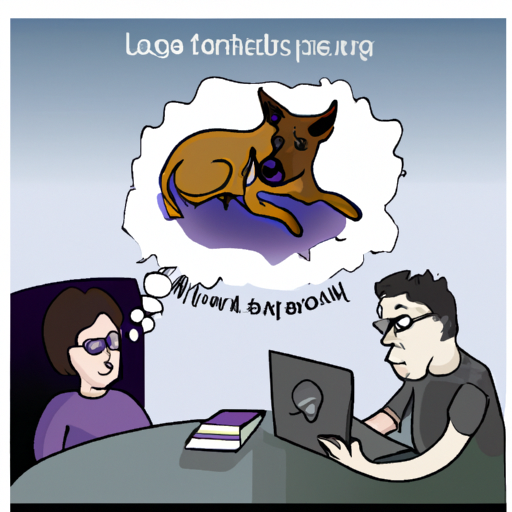As a passionate pet lover and caregiver, it’s crucial to understand the potential health issues our furry friends may face. One of those health concerns is lupus, a serious autoimmune disease that can affect dogs. Understanding how dogs get lupus can help you to identify symptoms early and seek the appropriate veterinary care.
- Table of Contents
- Understanding Lupus in Dogs
- Causes of Lupus in Dogs
- Symptoms of Lupus in Dogs
- Diagnosing and Treating Lupus in Dogs
-
Frequently Asked Questions
-
Key Takeaways
- Lupus is a serious autoimmune disease that can affect dogs.
- There are two main types of lupus in dogs: Discoid Lupus Erythematosus (DLE) and Systemic Lupus Erythematosus (SLE).
- There is no single known cause of lupus in dogs, but it’s believed to be a combination of genetic, environmental, and hormonal factors.
- Lupus can be challenging to diagnose due to the variety of symptoms it can present.
- Treatment options for lupus in dogs aim to manage symptoms and improve quality of life.
Understanding Lupus in Dogs
Lupus is a type of autoimmune disease, which means the dog’s immune system mistakenly attacks its own body tissues. There are two main types of lupus in dogs: Discoid Lupus Erythematosus (DLE), which primarily affects the skin, and Systemic Lupus Erythematosus (SLE), which can affect multiple systems in the body.
According to experts from PetMD, DLE is the more common form of lupus in dogs, and it’s usually less severe than SLE. However, both forms of lupus can significantly impact a dog’s quality of life.
Causes of Lupus in Dogs
The exact cause of lupus in dogs is not fully understood, but it’s believed to be a combination of genetic, environmental, and hormonal factors. Some breeds, such as German Shepherds, Shetland Sheepdogs, and Siberian Huskies, are more prone to developing lupus, suggesting a genetic predisposition.
Exposure to sunlight can trigger lupus symptoms in some dogs, particularly those with DLE. Certain medications may also induce lupus-like symptoms, though this is not common.
Additionally, hormonal factors are believed to play a role. Female dogs are more likely to develop SLE, suggesting that sex hormones could influence the onset of the disease.
Symptoms of Lupus in Dogs
Lupus can present with a wide variety of symptoms, making it a challenge to diagnose. The symptoms will depend on the type of lupus and the specific body systems affected.
For dogs with DLE, symptoms may include:
- Skin lesions, particularly around the nose, eyes, and ears
- Loss of pigmentation around the affected areas
- Ulcers in severe cases
In the case of SLE, symptoms can be more varied and severe. They may include:
- Joint pain and inflammation
- Kidney problems
- Fever
- Lethargy and loss of appetite
- Skin issues
- Anemia
Diagnosing and Treating Lupus in Dogs
Due to the range of symptoms that lupus can present, diagnosing the disease can be a complex process. It typically involves a combination of physical examination, blood tests, skin biopsies, and potentially other diagnostic tests.
Treatment for lupus in dogs is typically focused on managing symptoms and improving the dog’s quality of life. This can involve medications to reduce inflammation, manage pain, and suppress the immune system’s activity. In addition, dogs with DLE should be protected from sunlight to avoid triggering symptoms.
For more in-depth information on dog health and care, you can explore articles on OneTopDog. They offer a wealth of resources on various health issues in dogs, including skin conditions and autoimmune diseases.
Frequently Asked Questions
- Can lupus in dogs be cured?
-
No, there is currently no cure for lupus in dogs. However, the symptoms can often be managed effectively with the right treatment and care.
-
Can lupus in dogs be prevented?
-
There is no known way to prevent lupus in dogs. However, regular vet check-ups can help to identify any health issues early and begin treatment promptly.
-
Is lupus in dogs contagious?
- No, lupus is an autoimmune disease and cannot be transmitted from one dog to another.
Remember, as a caretaker, your dog’s health and wellbeing are in your hands. Understanding diseases like lupus is the first step towards ensuring your furry friend’s optimal health. For more insights on dog health, check out this article on common health issues in dogs.



